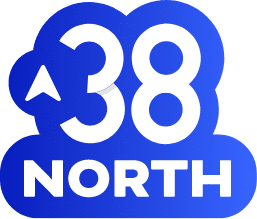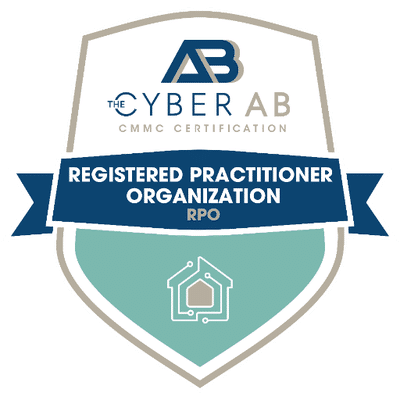A Checklist for the Information Security Registered Assessors Program (IRAP) Assessment
Companies planning to do business with the Australian Federal Government must pass a compliance assessment conducted by an accredited Information Security Registered Assessors Program (IRAP) assessor. This evaluation ensures that companies meet the strict cybersecurity standards mandated by the Australian government.
Although the assessment can be complex and time-consuming, successfully completing it demonstrates the organization’s commitment to Australia’s robust information security practices. Achieving IRAP compliance not only provides access to lucrative government contracts but also enhances the company’s reputation for trustworthiness and reliability in the global market.
Learn more: How to Achieve IRAP Compliance

What Is IRAP Compliance?
IRAP is an initiative by the Australian government that aims to provide entities with access to high-quality security assessment services. Earning IRAP compliance means adhering to the cybersecurity standards and controls outlined by the Australian Government Information Security Manual (ISM). The process of IRAP compliance certification involves undergoing a rigorous risk assessment to identify and manage potential cybersecurity risks.
Essentially, IRAP compliance demonstrates an organization’s commitment to robust information security practices, particularly when engaging with Australian government entities.
How to Prepare for Your IRAP Assessment
Because achieving IRAP compliance is complex, 38North Security has created an easy-to-follow checklist.
Gather Your Required Documents
When preparing to apply for IRAP compliance, organizations must gather the following essential documents.
- System Overview Document (SOD): A comprehensive outline detailing the architecture, components, and functionalities of the system under assessment.
- Security Risk Management Plan (SRMP): A structured document outlining procedures for identifying, evaluating, and mitigating security risks to safeguard data, systems, and assets.
- Incident Response Plan (IRP): A predefined set of procedures and protocols to follow in the event of a cybersecurity incident to minimize damage and facilitate recovery.
- Media Management Policy (MMP): Guidelines governing the storage, handling, and disposal of media containing sensitive information to prevent unauthorized access or data breaches.
- User Access Management (UAM) Plan: A documented strategy for managing user access to systems, applications, and data, ensuring appropriate permissions and minimizing security risks.
- Vulnerability and Patch Management Plan (VPM): Procedures for identifying, prioritizing, and applying patches to address software vulnerabilities and reduce the risk of exploitation.
- Audit and Accountability Policy (AAP): Guidelines for conducting audits, monitoring system activities, and maintaining logs to ensure accountability and compliance with security policies.
- Cryptographic Key Management Plan (CKM): Policies and procedures for generating, distributing, storing, and revoking cryptographic keys to secure communications and data.
- System Security Plan (SSP): A detailed document outlining the security controls, policies, and procedures implemented within the system, including chapters covering various aspects of security.
- Statement of Applicability (SOA): An overview of how specific security controls from a standard or framework apply to the organization’s system and the rationale behind their implementation.
- Business Impact Level Assessment (BIL) template: An evaluation tool used to assess the potential impact of disruptions to system operations on business functions and continuity.
- Configuration Management Plan (CMP): Procedures for managing changes to system configurations to ensure consistency, stability, and security.
38North Security provides expert support in preparing these essential documents so your business can meet IRAP compliance requirements.
Learn more: What is the IRAP Compliance Process? A Comprehensive Guide
Ensure You Have High-Quality Evidence
To ensure a successful IRAP assessment, businesses must provide high-quality evidence that effectively demonstrates compliance with cybersecurity standards. The quality of evidence directly influences an IRAP assessor’s ability to evaluate security controls.
Here’s a guide for how the evidence will be considered in the evaluation:
- Poor Evidence: Incomplete or outdated documentation that lacks specificity and relevance to the assessment criteria. For instance, generic policy templates without customization or implementation details.
- Fair Evidence: Documentation that partially addresses the assessment criteria but needs more consistency or clarity. This may include incomplete system diagrams or outdated risk management plans.
- Good Evidence: Comprehensive documentation that aligns with the assessment criteria and provides clear insights into implemented security controls. Examples include up-to-date system architecture diagrams, detailed security policies, and recent audit reports.
- Excellent Evidence: Highly detailed and meticulously maintained documentation that thoroughly covers all aspects of the assessment criteria. This includes well-documented incident response procedures, evidence of regular security training for staff, and detailed vulnerability assessment reports.
High-quality evidence can facilitate a smoother assessment process and demonstrate commitment to protecting computer systems, networks, and sensitive data. However, it’s important to note that “quality” is subjective to the assessor, who has the ultimate say in how good an artifact is.
What to Expect During Your IRAP Compliance Assessment
The IRAP compliance assessment involves several steps to evaluate an organization’s information security measures:
- Pre-Assessment: The initial stage involves planning the assessment, defining its scope, and setting objectives.
- Assessment: This phase comprises a detailed evaluation of the organization’s policies, procedures, and security controls by a certified IRAP assessor.
- Reporting: After the assessment, the assessor compiles a comprehensive report highlighting findings, recommendations, and any areas of non-compliance.
The duration of an IRAP compliance assessment varies depending on the complexity of the organization’s systems and processes. On average, assessments can take anywhere from a few weeks to several months, with more intricate systems requiring longer evaluation periods.
What to Expect After Proving IRAP Compliance
Once an organization proves its compliance with IRAP regulations through an initial assessment, it must continue making efforts to maintain it. Regular reviews and updates are necessary to ensure that they stay up to date with evolving security standards and the quarterly ISM requirement updates. Periodic evaluations of security measures, policies, and procedures are strongly advised to identify any gaps or areas for improvement.
Being alert and proactive can help organizations adapt to emerging threats and regulatory changes, enhance their security, and remain compliant with IRAP requirements.
Achieve and Maintain Compliance With the Leading US-Based IRAP Experts
Are you looking for a way to make your path from a US-based or international standard to IRAP compliance easier? Try 38North, the leading cloud security team specializing in IRAP advisory services in North America. Our experienced experts possess the knowledge and expertise to help you align your existing compliance efforts with ISM’s requirements for IRAP, regardless of whether you’re already compliant or in the planning phase.

If you need an IRAP assessor, we have certified assessors based in Australia who offer comprehensive support to navigate the intricacies of IRAP compliance. With our global experience and local specialization, we’ll handle coordination with Australian stakeholders in their local time zones so you can focus on your business.
Contact us today to discover how our team can guide your organization toward seamless IRAP compliance.





